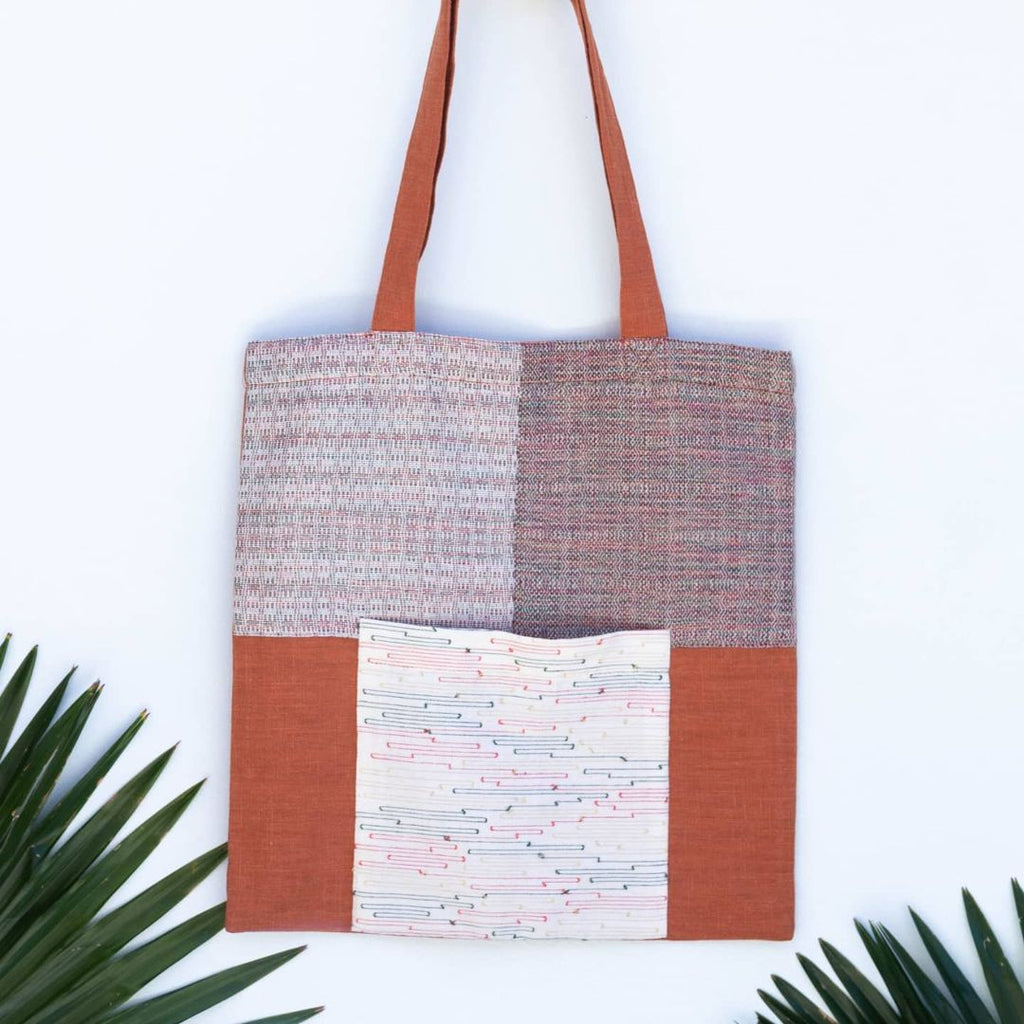Jessica, the modern weaver of Damgo Studio, discovered her passion for sustainable fashion and the textile industry in her immersion with a weaving community. "[I] wanted to be able to create original textiles and a friend of mine introduced me to the Hablonan ni Lauriana weaving community in Argao, Cebu. It was the collaboration with this weaving community that really sparked my interest in weaving. I was so fascinated with the idea of being able to create a textile from scratch."
This led to a series of exploration and constant thinking out of the box that birthed new dreams in Damgo Studio. Here, Jessica is able to create a platform where he can creatively express herself while she continues to find innovative ways to adopt circular design in creating textiles and products that are better for both the people and the planet.
"It is my hope that through my design studio and brand, I can encourage the creation of contemporary, eco-conscious, and ethically made Philippine textiles and products. Apart from that, is my desire to be able to pass on design knowledge and skills to indigenous makers to help them stand out in the market so that they can flourish and thrive in their craft." tells Jess. As her brand name Damgo, meant "dreams" in the Visayan language, it represents her dreams and the dreams of the artisans the brand collaborated with.
Damgo Studio has also recently won the Fashion Values Challenge posing the challenge among players in fashion to work on innovative and transformational ideas that use fashion to promote sustainability. Kinabuhi: New Life through Modern Weaves, Jessica’s winning entry, “is a fashion business that avoids new materials that harm the planet and uses traditional crafts to regenerate nature. This is done by reworking damaged or unwanted second-hand garments and combining these with regenerative handwoven textiles. Kinabuhi intends to support the restoration of nature by providing Philippine handloom weaving communities with natural fibre yarn from eco-conscious manufacturers that source from regenerative farms. It will also donate 10% of its net profits to the preservation of Philippine forests in collaboration with a local non-profit working with indigenous communities.”
Jess lives the value of continuing education. She uses Damgo Studio as a platform to educate consumers about the value of sustainable textiles. “I think this is so important to share because pursuing sustainability can be really challenging. Positively encouraging others by doing the best we can and sharing best practices can lead to more people pursuing sustainability in their own life or creative practice. “
Our collaboration with Damgo Studio presents a collection of handwoven textile wall hangings thoughtfully woven by Jess herself. These wall hangings take inspiration from exotic tropical flowers that can be found in the Philippines. She uses Abaca Pinangabol fabric scraps that she carefully took apart and rewoven into the textile.
This collaboration is a huge feat for Jess having started work in ANTHILL not knowing how to weave and now proudly calling herself a weaver. “Through my work as a textile and apparel designer at ANTHILL I have tried to explore ways to use ANTHILL's textile waste to create new textiles. The textiles I have made for this collaboration are really special because they are made with ANTHILL's abaca pinangabol scraps, which I have never tried using before.”
Looking at the wall hangings, no one would come to think that they came from fabric scraps. This innovative way of weaving illustrates the growing nature of weaving proving that there is no limit to what you can do as long as you put your mind into it.
Go ahead and check Damgo Studio's beautiful wall hangings and let it inspire you to spark your own creativity.

DAMGO Studio
This collection of handwoven textile wall hangings are inspired by exotic tropical flowers found in the Philippines such as the jade vine, passiflora moluccana, and the hooded orchid.VIEW COLLECTION








Leave a comment